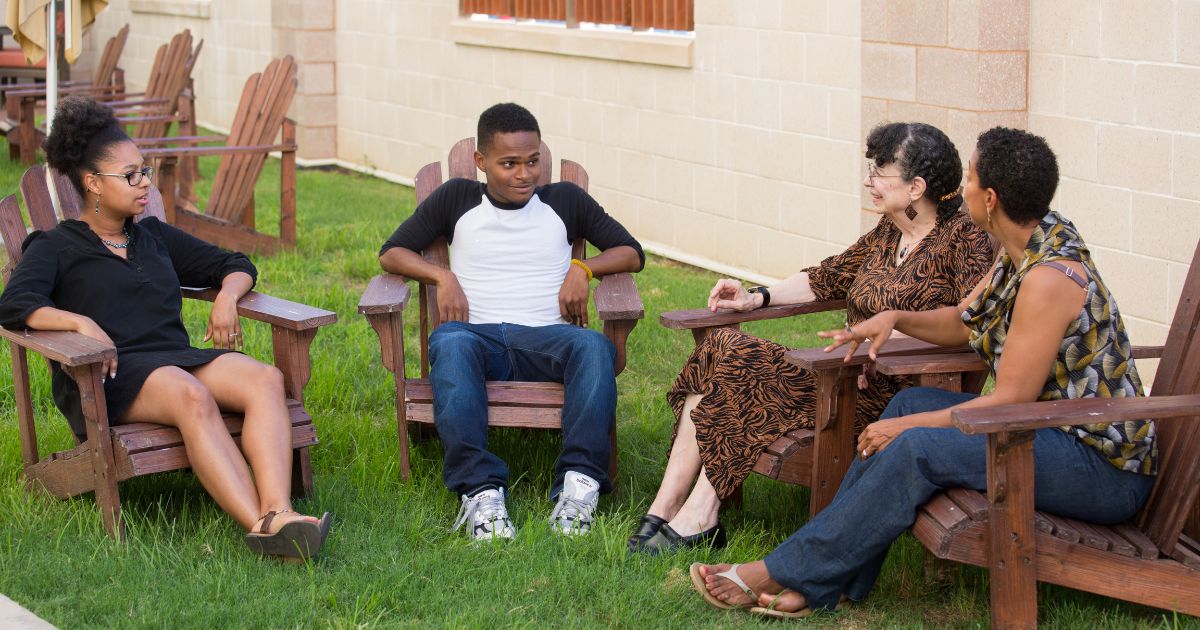What Is Anxiety?
Anxiety sucks. There’s no way around it.
If you’ve ever experienced it, you know how debilitating it can be. Tasks that once seemed easy to you may now feel like they require a herculean effort. You may feel like you’re in a constant state of unease, and it can be difficult to live your life normally under these circumstances.
You may have clinical anxiety. Clinical anxiety refers to excessive, long-lasting feelings of worry, fear, or nervousness that impair daily functioning and can lead to significant distress or discomfort.
This is different from normal anxiety, which is a natural and usually temporary response to stressful situations or potential threats, characterized by heightened alertness and preparation for action. Normal anxiety typically subsides once the stressful situation is resolved, whereas clinical anxiety persists and often escalates over time.
How Common Is Anxiety?
If you don’t have anxiety, chances are you know someone who does. According to data from the National Institute of Mental Health, a little over 19% of US adult suffered from anxiety in the past year. That same data shows women are twice as likely as men to suffer from anxiety.
Clinical anxiety requires professional mental health treatment. In this article, we’ll talk about anxiety disorders and how an anxiety treatment center can help you.
Types of Anxiety Disorders
Depending on the exact symptoms, clinical anxiety usually manifests as an anxiety disorder.
The following are anxiety disorders one can experience:
Generalized Anxiety Disorder (GAD)
This is characterized by persistent and excessive worry about various aspects of life, such as work, health, family, or money. People with GAD find it difficult to control their worry and may feel restless, fatigued, irritable, or have trouble concentrating and sleeping.
Panic Disorder
Individuals with panic disorder experience recurrent and unexpected panic attacks—sudden episodes of intense fear accompanied by physical symptoms like heart palpitations, chest pain, shortness of breath, or dizziness. They may develop anticipatory anxiety and avoid situations for fear of triggering an attack.
Social Anxiety Disorder (SAD)
SAD, also known as social phobia, involves extreme fear of being humiliated or embarrassed in social situations. People with SAD may avoid social interactions, leading to isolation and difficulties in work or school.
Obsessive-Compulsive Disorder (OCD)
OCD is characterized by recurrent, unwanted thoughts (obsessions) and/or repetitive behaviors (compulsions). People with OCD may perform rituals like hand washing or checking things to relieve their anxiety caused by these obsessions.
Post-Traumatic Stress Disorder (PTSD)
PTSD can occur following exposure to a traumatic event, such as warfare, sexual assault, or a severe accident. Symptoms can include flashbacks, nightmares, severe anxiety, and intrusive, distressing thoughts about the traumatic event. Therapy for trauma would be the most appropriate therapy methodology here.
Each of these disorders is distinct and requires its own specific treatment approach. It usually involves some combination of cognitive-behavioral therapy (CBT), exposure therapy, and/or medication.
What Are the Signs and Symptoms of Anxiety?
Anxiety disorder symptoms break down into two categories: physical symptoms and mental symptoms:
- Physical symptoms may include elevated heart rate, rapid breathing, stomach pain, sweating, trembling, and sleeping issues.
- Mental symptoms may include the urge to avoid things that inspire anxious thoughts, difficulty controlling worry, feelings of panic (maybe a sign of panic disorder), irritability, and difficulty concentrating.
Signs to Look For
The specific symptoms can vary depending on the type of anxiety disorder, but common signs and symptoms can include:
- Excessive worrying or fear — This is the most common symptom. The worry often is disproportionate to the actual circumstances and difficult to control. It might focus on health, work, social interactions, or everyday routine life circumstances.
- Restlessness — You might find it difficult to relax, even during downtime. There’s a sense of constant nervousness or tension.
- Being easily fatigued — Even without physical exertion, you may find yourself often feeling tired.
- Difficulty concentrating — Your mind may go blank or you might find your thoughts constantly returning to your worries. This can make it hard to focus on tasks.
- Irritability — You might feel “on edge” and have a short temper.
- Sleep problems — This could be trouble falling or staying asleep, restlessness at night, or unsatisfying sleep.
- Muscle tension — This could manifest as a constant feeling of tightness in your muscles or recurrent muscle aches.
- Panic attacks — These are sudden periods of intense fear that come on quickly and reach their peak within minutes. Symptoms during a panic attack can include heart palpitations, sweating, trembling or shaking, feeling short of breath or smothered, and fear of dying or losing control.
- Avoidance of situations that might cause anxiety — You might go out of your way to avoid situations or places that make you feel anxious.
These are some general signs and symptoms, but everyone experiences anxiety differently.
If you or someone else is experiencing these symptoms and they’re affecting daily life, it’s important to seek professional anxiety therapy. They can provide a diagnosis and discuss treatment options, which can include therapy, medication, and lifestyle changes.
Is Anxiety Treatable?
Yes, anxiety is very treatable. There are a variety of clinical anxiety treatments available and they break down into several categories:
- Holistic anxiety treatments
- Therapy
- Medication-assisted treatment
Many people want to treat their anxiety naturally. This can be because they are skeptical of pharmaceutical medication or it could be due to a question of cost.
Here is a list of natural anxiety supplements that work for some people:
- Valerian Root
- Chamomile
- Vitamin A
- Vitamin B Complex (Vitamin B6 and B12)
- Vitamin C
- Vitamin D
- Vitamin E
- Magnesium
- L-Theanine
- Omega-3 Fatty Acids
The other main holistic approach to anxiety is lifestyle changes: specifically, exercise and meditation The scientific evidence supporting exercise as a way to reduce anxiety is very strong. This is particularly so for aerobic exercise – walking, running, biking, swimming, or other ways of getting your heart rate up. Meditation likewise has a lot of scientific support.
Therapy for Anxiety
Cognitive-behavioral therapy (CBT) is often the first-line treatment for generalized anxiety disorder and many other anxiety conditions. During CBT, a clinical anxiety counselor focuses on helping the person address the negative thought patterns that he may not be aware of.
If you work with a licensed mental health treatment professional to do CBT, the following are some of the things you and your anxiety counselor might do in your sessions for anxiety treatment:
Discuss Symptoms
Your early sessions might include time to talk about the symptoms of generalized anxiety disorder, which of them you’re experiencing, and when and how often they appear.
As you discuss the types and severity of your symptoms, your therapist can better understand how anxiety is affecting you. They can work with you to create an individualized treatment plan to meet your specific needs with this information.
Identify Negative Thought Patterns
CBT often starts with identifying specific negative thoughts. You might single out anxiety-provoking ideas so that you can take the next step in the CBT process, which is usually learning how to manage anxious thoughts and feelings. With the professional support of your anxiety counselor, you might also explore negative patterns in the way you typically think.
Replace Them With More Positive Thoughts
For many people living with mental health issues, the idea that you have the option to choose what thoughts you hang onto can be an unexpected relief. If you learn that you can have the power to select and manage your thoughts, you may have more control over the way you feel and think, which is extremely valuable for combatting anxiety. An anxiety counselor can guide you as you explore the new thoughts you might choose that are most beneficial and realistic.
Change Your Behaviors
The behavior part of cognitive-behavioral therapy refers to putting your new insights into action. During treatment, you might make plans for undertaking behaviors like doing something you fear, journaling about your feelings, or making different thought choices when you feel anxious.
Medication-Assisted Treatment
- Selective Serotonin Reuptake Inhibitors (SSRIs) — SSRIs such as fluoxetine (Prozac), sertraline (Zoloft), and escitalopram (Lexapro) work by increasing levels of serotonin in the brain. They are often first-line treatments for generalized anxiety disorder (GAD), panic disorder, and obsessive-compulsive disorder (OCD).
- Serotonin and Norepinephrine Reuptake Inhibitors (SNRIs) — SNRIs, including venlafaxine (Effexor) and duloxetine (Cymbalta), increase levels of both serotonin and norepinephrine in the brain. They can be effective in treating GAD, panic disorder, and social anxiety disorder.
- Benzodiazepines — These are fast-acting sedatives that can quickly reduce acute symptoms of anxiety. Examples include alprazolam (Xanax), diazepam (Valium), and lorazepam (Ativan). They are often used for acute relief of severe anxiety, but due to potential issues with dependence and withdrawal, they are not typically the first choice for long-term anxiety management.
- Tricyclic Antidepressants (TCAs) — These older antidepressants, such as imipramine (Tofranil) and clomipramine (Anafranil), can be very effective for anxiety disorders, but they often have more side effects than SSRIs or SNRIs.
- Buspirone — Buspirone is an anti-anxiety drug specifically used for the treatment of chronic anxiety. It’s not as sedating as benzodiazepines and doesn’t have the dependency risks.
- Beta-blockers — Although primarily used for heart conditions, beta-blockers like propranolol can also help manage physical symptoms of anxiety, especially in situations like public speaking.
- Antipsychotics— In certain cases, low doses of these medications, such as quetiapine (Seroquel), can be used as an add-on treatment for anxiety disorders when other treatments aren’t effective.
Psychotherapy
Psychotherapy, particularly cognitive-behavioral therapy (CBT) and exposure therapy, also plays a crucial role in the treatment of anxiety disorders, often in combination with medication. A comprehensive treatment plan will also likely include lifestyle modifications, like regular exercise, adequate sleep, and a healthy diet, as well as mindfulness and stress management techniques.
It’s important to remember that all medications have potential side effects and risks, and they should be taken under the guidance of a healthcare professional. What works best will depend on the individual, their specific symptoms, and their overall health.
How Can an Anxiety Treatment Center Help?
An anxity treatment center can be incredibly beneficial for someone struggling with anxiety. Centers offer comprehensive treatment plans from professional anxiety counselors, tailored to individual needs.
Here are some of the potential benefits:
- Professional Diagnosis — One of the main benefits is a professional and accurate diagnosis. Mental health is complex and it’s not uncommon for other conditions, such as depression, to co-occur with anxiety.
- Personalized Treatment Plans — Treatment Centers typically create individualized treatment plans for each patient. This is crucial because everyone experiences anxiety differently and what works for one person may not work for another.
- Therapy — Therapy, including cognitive-behavioral therapy and exposure therapy, are often central to treatment.
- Medication Management — For some individuals, medication can be a helpful part of treatment. This is where medication management comes in.
- Support Groups — Many treatment centers offer support groups where patients can connect with others who are experiencing the same struggles.
- Educational Workshops — Centers often provide educational resources and workshops to help individuals understand their condition.
- Holistic Approaches — Some centers may also offer holistic or complementary therapies such as mindfulness, yoga, or acupuncture, which can help manage symptoms and promote overall well-being.
- Long-Term Skills — Perhaps one of the most significant benefits of these centers is that individuals learn skills that can help them manage their anxiety over the long term, beyond their time at the center.
- Aftercare Planning — A good treatment center will also help to plan for aftercare once the individual leaves the center. This might include referrals to outpatient therapists, strategies for maintaining progress, and plans for how to handle potential relapses.
Clinical anxiety treatment centers can provide a structured, supportive environment where individuals can focus on their recovery and gain the skills and knowledge needed to manage their anxiety effectively.
Anxiety Disorder Treatment at South Coast Behavioral Health
For those struggling with addiction, South Coast Behavioral Health2 offers compassionate and affordable addiction counseling.
The first step is going through a medical detox. Our medical detox program in California is staffed by caring and compassionate professionals who can provide you with medications to manage your withdrawal symptoms.
At South Coast, we take pride in offering care that is closely tailored to specific issues. To that end, we offer gender-specific detox programs, with medical detox for men in Irvine, CA, and medical detox for women in Huntington Beach, CA.
After detoxing, proper treatment can begin.
Treatment for substance abuse takes place along an entire spectrum of care. Along that entire spectrum are various behavioral therapies, support groups, and the use of medically-assisted treatment (MAT).
These levels of treatment are, in order, as follows:
Residential Treatment in California
After successfully completing medical detox, you’ll receive inpatient treatment in Orange County California. There, you’ll receive medically-assisted treatment and dual diagnosis treatment to deal with any cravings or co-occurring mental health issues you may be battling. We also offer residential treatment facilities in Costa Mesa, Irvine, and Huntington Beach for those who desire gender-specific treatment. There, patients get round-the-clock medical attention and monitoring while living at the institution full-time.
In addition to individual and group counseling and medication management, you’ll also have access to leisure activities and family support services.
Partial Hospitalization in California
Most clients start substance abuse treatment with South Coast in our residential treatment program. After completing that, many desire something that still provides structure and support, but with extra space and time to oneself. For that, we offer Partial Hospitalization in Newport Beach.
A step down from inpatient care but with more structure than conventional outpatient programs, partial hospitalization offers a good balance for those looking to ease back into normal life. Clients can receive care five to seven days a week for a number of hours each day, returning back to their homes in the evening.
This way, they can recover without putting their daily lives completely on hold, receiving intense therapeutic interventions like group and individual therapy, skill development, and medication management as necessary.
Intensive Outpatient Treatment in California
For those leaving inpatient residential treatment or partial hospitalization, intensive outpatient programs (IOP) are yet another gradual step forward on the road to recovery.
With a focus on group therapy, individual counseling, and education, clients undergoing Intensive Outpatient Treatment in Newport Beach can meet three to five days a week. Each session lasts three hours.
This level of care requires the least amount of attendance at a facility.
Get Started Today
If you or a loved one are struggling with substance addiction but wonder how long addiction counseling takes or have other questions, call us at 866-881-1184. Our highly qualified staff will be happy to help give you an idea on what to expect from your addiction recovery timeline, help verify your insurance, and assist with any other questions you may have.










